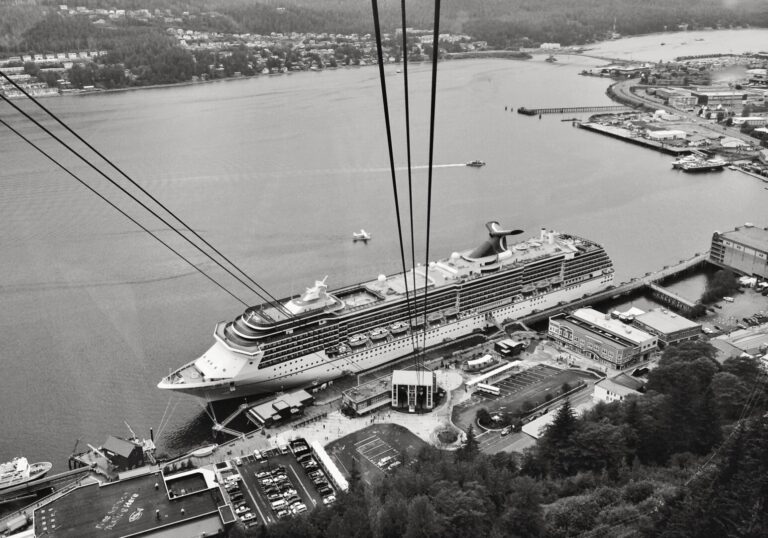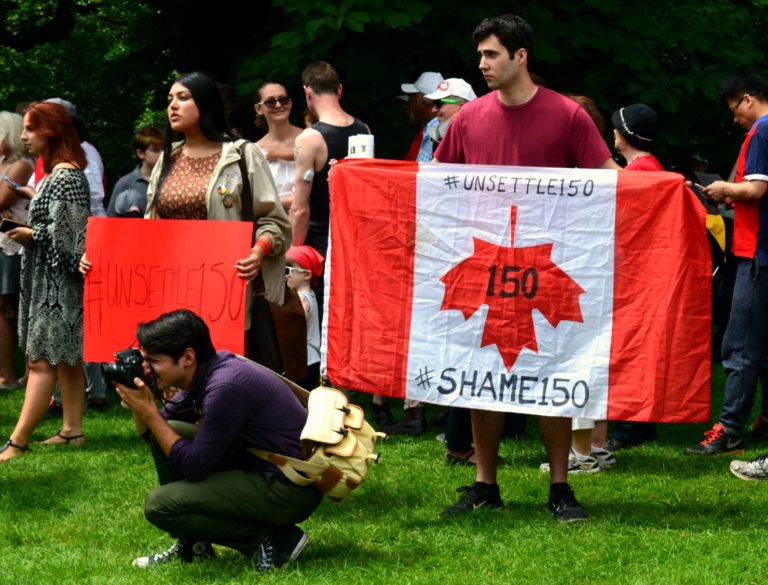In an era when urban space is theorized as an educative science enhancing productivity, business, and management, we witness the emergence of teaching as a dominant productive force for the first time in the history of capital. Given the decisive role of knowledge production in the development of globalized urbanization it becomes vital to identify critical pedagogies that not only engage the production of space but grasp the production of space as pedagogical. To do so, I attend to interventions into regionalist studies and the global city to argue for visual spatial tactics as a tool for a critical regionalist pedagogy capable of linking material, affective, and discursive practices with a placed-based approach to globalized urbanization. Students design a collaborative website documenting the spatial history of cruise ship tourism in Alaska as an argument over the right to the city. Identifying this living process—framing the cruise industry as a constitutive system fusing discourse, space, and identity to restructure history, nature, and region—becomes a means of questioning and revising otherwise generalized theories often brought to bear on tourist landscapes, on Alaska, and on critical pedagogy itself. This case study shows the emergence of the cruise ship city as inseparable from the onset of globalized urbanization and how it, in turn, provides edifying material to mobilize a critical regionalist pedagogy within contemporary forms of educative landscapes.
Keyword: spatial relations
Webs of Relationships: Pedagogies of Citizenship and Modalities of Settlement for “Muslims” in Canada
Immigrants to Canada must pass a set of pedagogical gate-keeping exercises that compel settler socio-spatial relations to allow them to come into the fort of the nation-state as neoliberal multicultural subjects. Bringing together Sunera Thobani’s concept of exalting the white subject and Sherene Razack’s theorizations on Muslim eviction from Western politics, I argue that those racialized as Muslim are positioned as perpetual immigrants, compelled to exalt whiteness or be evicted. Caught between an unresolved tension of settler spatial relations to nation and Indigenous spatial relations to Land, I examine what decolonial subject positions are available for “Muslims” using the Canadian citizenship study guide and oath as focal points. I foreground an Indigenous analytic and my Arab lived experience to do a contrapuntal reading of the social construction of Canada in the study guide and trace how the relationships to nation espoused in the manual are incommensurable with the relationships to Land fundamental to Indigenous worldviews. Throughout the paper, I draw on the experience of Masuma Khan, who was censured by her university and the public when she advocated that Canada 150 be remembered as Indigenous genocide rather than a celebration of nationhood, to unpack how racialization colonizes and colonization racializes.

